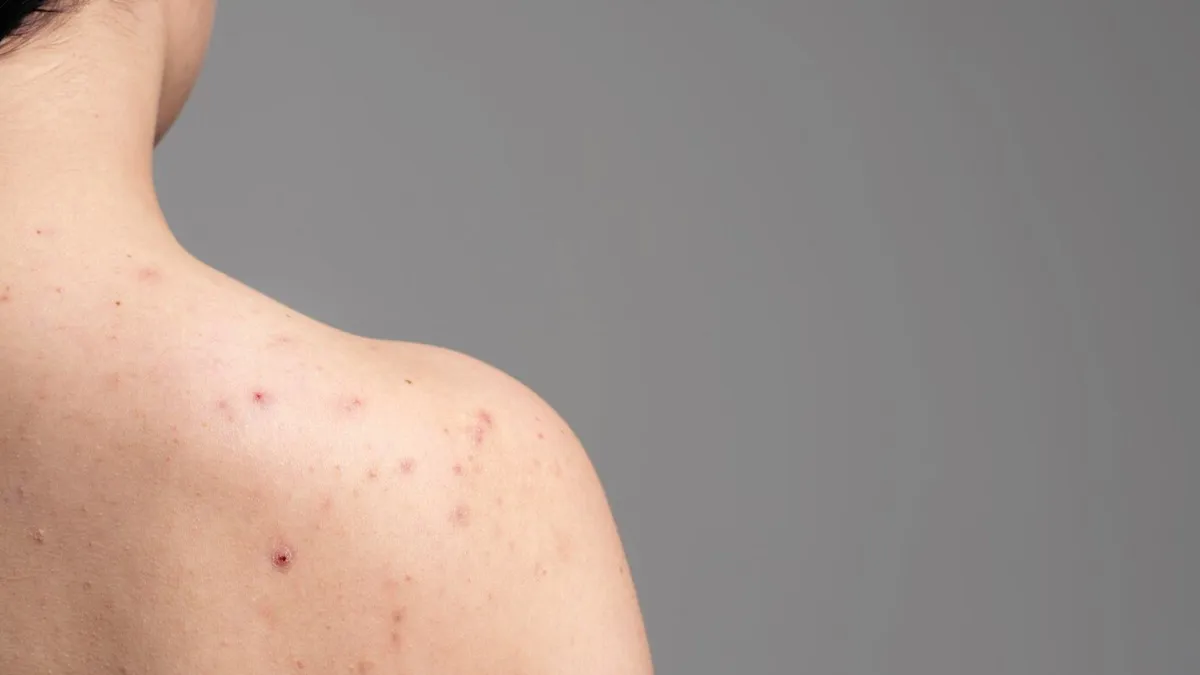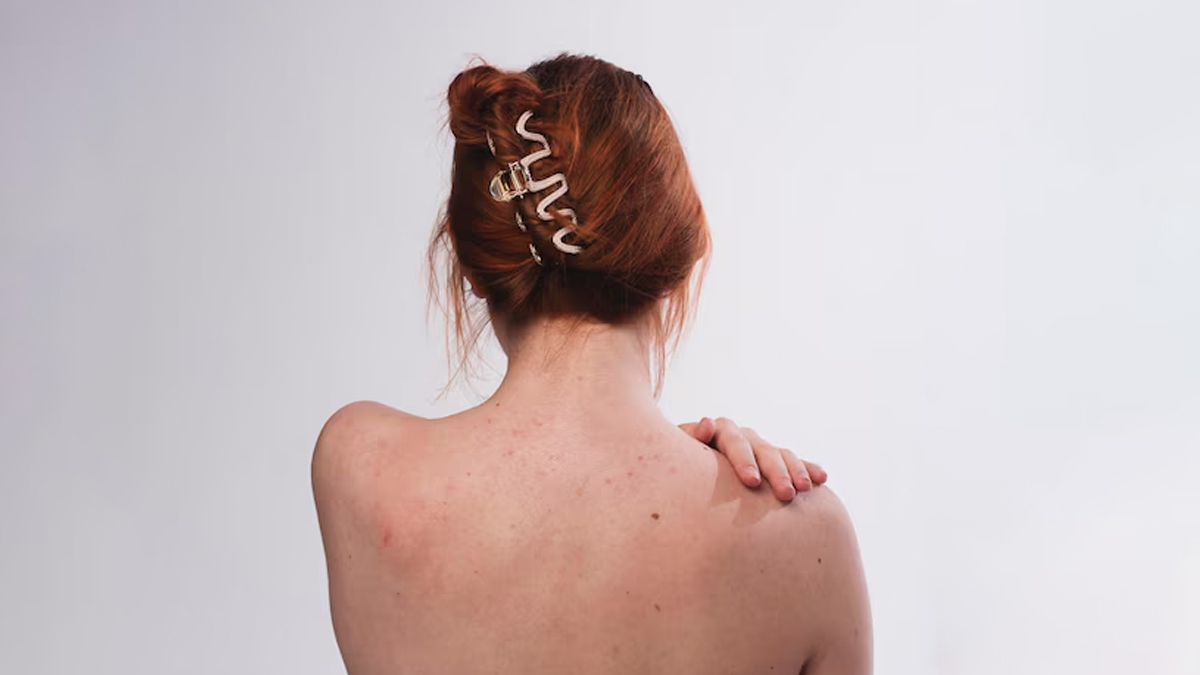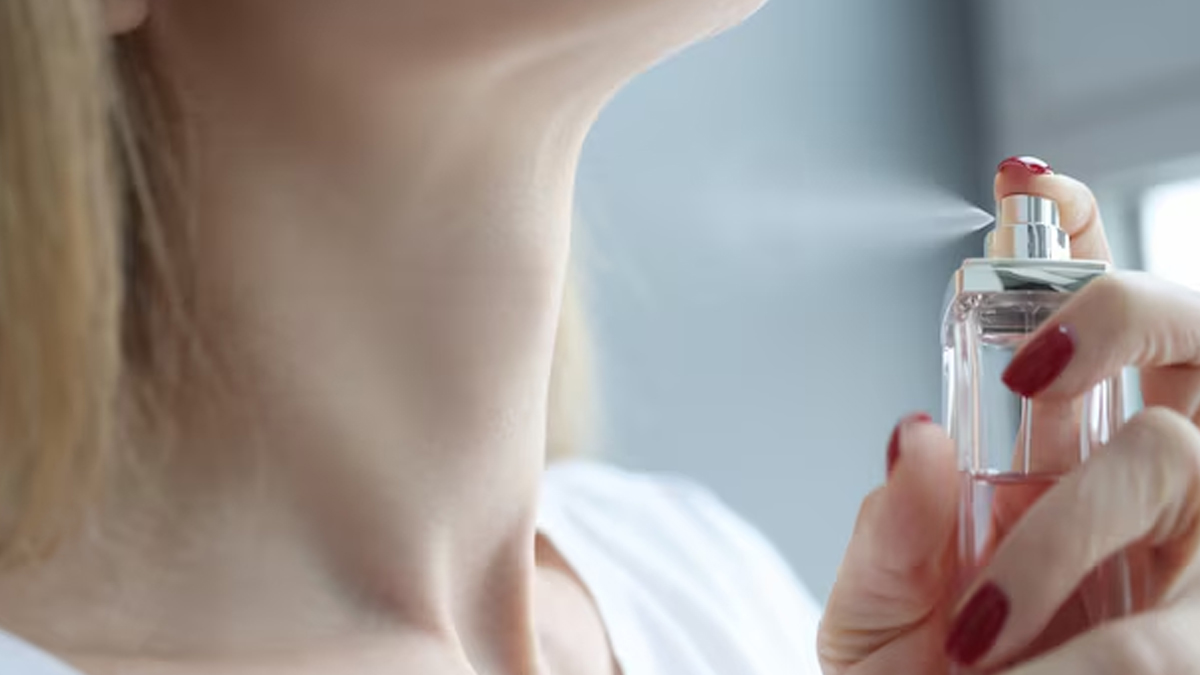
That signature scent you love so much? It might be the reason your shoulders or back are breaking out. While we often blame sweat, oily skin, or tight clothes for body acne, the ingredients in your perfume, body mist, or even fragranced lotion could quietly irritate your skin and clog your pores.
Table of Content:-
What Is Body Acne?

Body acne, also known as truncal acne, is breakouts on the upper arms, shoulders, back, and chest. Similar to facial acne, it results from a mixture of excess oil (sebum), dead skin cells, and bacteria clogging pores.
But unlike the face, the skin on the body often deals with extra friction from clothing, longer exposure to sweat, and sometimes, a dose of heavy perfume or fragranced products sprayed directly onto the skin.
Also Read: Let’s Talk About Bacne, Boob Sweat And Ingrowns: The Body Care Guide Nobody Gave You
How Fragrances Can Affect the Skin
Fragrances are one of the most common causes of skin irritation and allergic contact dermatitis. According to research published in 2022, the most common allergens were fragrances, skin-conditioning agents, surfactants, and preservatives, in that order.
When sprayed directly on the skin, certain ingredients in perfumes can:
- Irritate pores and cause inflammation, especially in acne-prone skin
- Trap heat and sweat, worsening clogged pores
- Cause allergic reactions that mimic breakouts (acneiform eruptions)
- Disrupt the skin barrier, making skin more vulnerable to external irritants
One of the key concerns? Fragrance mixes often contain alcohol, synthetic musks, essential oils, and preservatives, some of which are known as skin sensitisers or comedogenic (pore-clogging).
Are Perfumes Comedogenic?

Although perfumes are not directly labelled as comedogenic, many contain occlusive or irritant compounds. A 2020 study found that synthetic fragrance components, particularly limonene, linalool, and eugenol, can oxidise on exposure to air and create irritant byproducts that lead to inflammation or allergic responses.
Additionally, body sprays and lotions with fragrance are often underreported culprits in truncal acne, especially in individuals with sensitive skin types.
Areas Most Affected by Fragrance-Induced Acne
- Shoulders and upper back: Common spots where perfume is sprayed
- Chest area: Frequently exposed and often layered with lotions or sunscreens
- Neck and behind the ears: Thin, sensitive skin that may react quickly
These areas are also more likely to be exposed to heat, sweat, and friction, all of which increase the skin’s sensitivity to external irritants like fragrance.
How to Tell If Fragrance Is the Problem
If you are repeatedly breaking out in the areas you apply perfume or fragrant lotions, but not otherwise, it's likely your body care or skincare routine.
Look out for:
- Sudden bumps or small pimples after trying a new body mist or scented lotion
- Red, itchy spots that look like acne but don't improve with acne treatments
- Breakouts that are limited to the same spot where fragrance is applied
How to Smell Good Without Breaking Out
Don’t spray perfume directly on your skin. Spray it on your clothes or hair instead.
- Use fragrance-free lotions if you are layering with perfume, too many scented products can overload the skin.
- Choose non-comedogenic, hypoallergenic body care if you have acne-prone skin.
- You should patch-test new products before using them all over your body.
- Shower post-workout to remove fragrance, sweat, and bacteria from the skin.
When to See a Dermatologist
If your body acne is persistent, painful, or leaving marks behind, it’s worth consulting a dermatologist. You may need a customised skincare regimen or patch testing to identify fragrance sensitivities.
Bottomline
Perfume may lift your mood and boost your confidence, but if it is sprayed directly on sensitive or acne-prone skin, it could also contribute to unwanted breakouts. Pay attention to what your skin is telling you, and try shifting your scent strategy. After all, healthy skin and great fragrance don’t have to be mutually exclusive.
[Disclaimer: This article contains information for informational purposes only. Hence, we advise you to consult your professional if you are dealing with any health issue to avoid complications.]
Also watch this video
How we keep this article up to date:
We work with experts and keep a close eye on the latest in health and wellness. Whenever there is a new research or helpful information, we update our articles with accurate and useful advice.
Current Version
